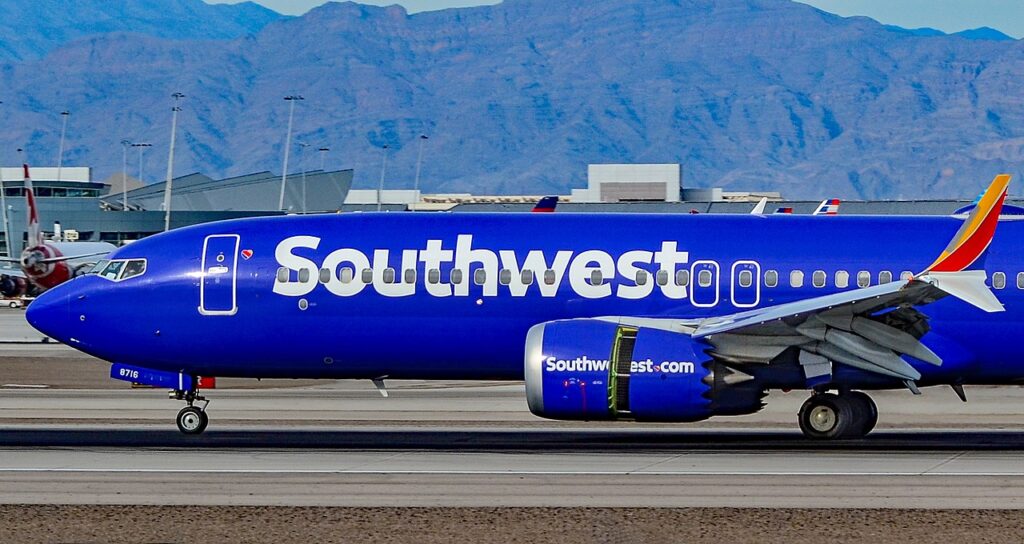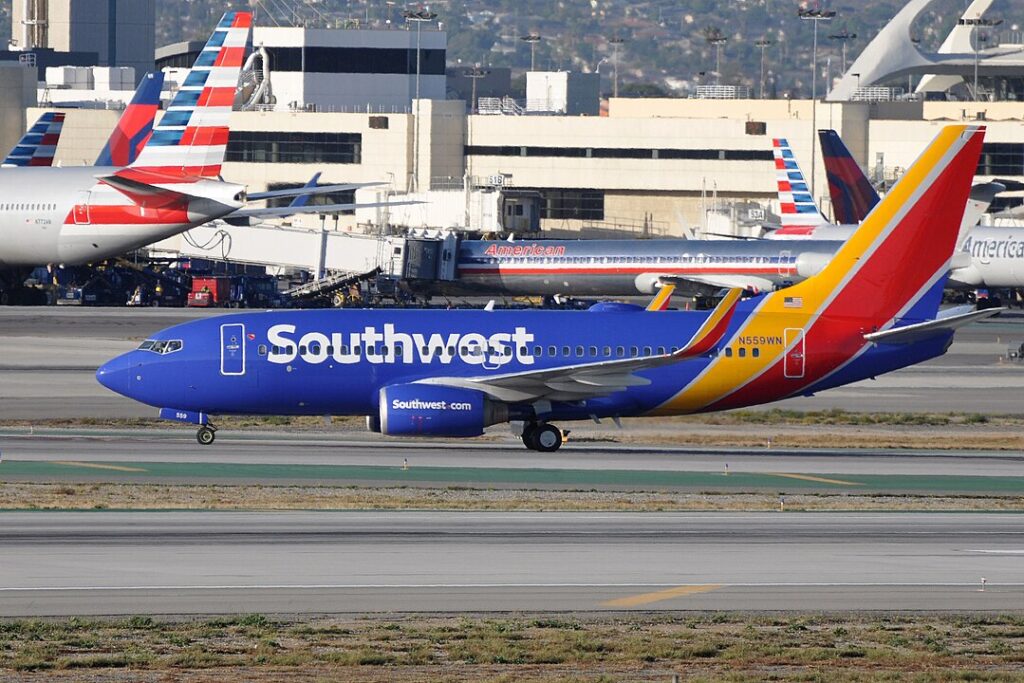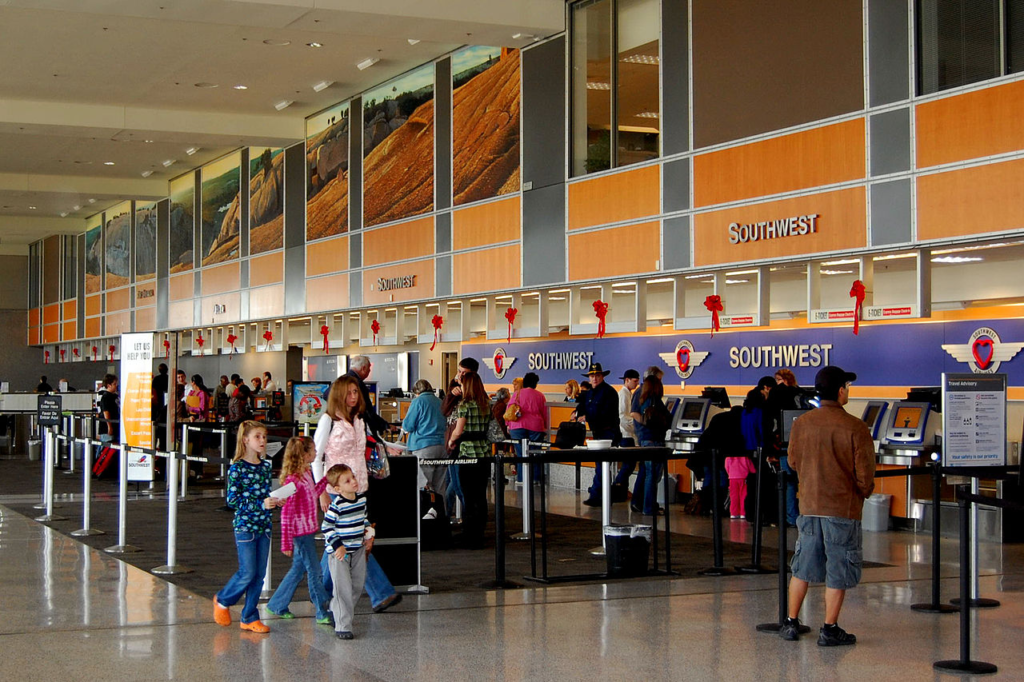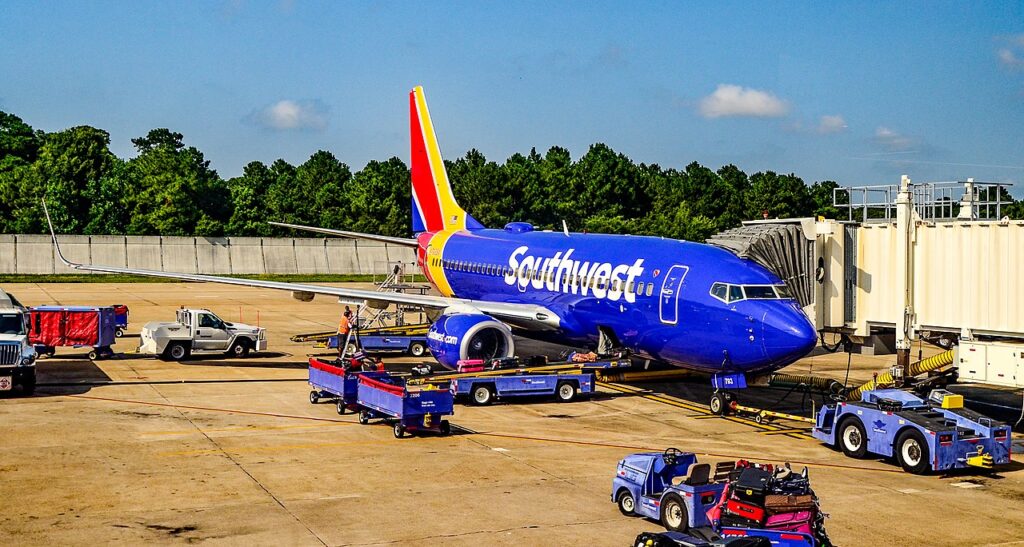DALLAS- The widespread memory is of Southwest Airlines (WN) experiencing a major breakdown last winter, a domino effect initiated by adverse weather conditions leading to flight cancellations. This overwhelmed the airline’s scheduling system, resulting in extensive cancellations.
The aftermath was a calamity of immense proportions, leaving tens of thousands of passengers stranded without viable means to reach their destinations. This occurred during a season when hotels and rental cars were fully booked.

Southwest Airlines Flight Cancellations
In connection with this incident, Southwest Airlines (WN) faced an unprecedented financial penalty of $140 million from the United States Department of Transportation (DOT).
More significantly, the loss of passenger confidence stemmed from how the airline managed the cancellations and subsequent days.
Adding to the challenges, the Southwest Airlines Pilots Association (SWAPA), the union representing the airline’s pilots, exacerbated the situation by explicitly stating that the meltdown resulted from insufficient investment.
Over the past year, the airline has been working diligently to reassure passengers that it would be adequately prepared for the winter season.

Executive Insights
In Southwest’s third-quarter earnings call, Chief Operating Officer Andrew Watterson tackled the airline’s winter readiness. Commencing with another apology, he acknowledged the significant impact of the disruption experienced by customers and employees last winter, expressing the weight it placed on the airline’s collective conscience.
Watterson emphasized Southwest Airlines’ deep pride rooted in its 50-plus-year history. Subsequently, he outlined the measures taken to ensure a recurrence of similar issues does not transpire during the upcoming holiday season.
“The disruption stemmed from an unprecedented storm hitting several of our crucial stations simultaneously, with multiple factors contributing to it,” he clarified. “Consequently, our action plan is structured into three key categories: winter operations, cross-team collaboration, and expediting operational investments—already part of our roadmap, including technology.”
Watterson highlighted a pertinent aspect as Christmas approaches. “One significant impact from Elliott (the name of the 2022 winter storm) was that 25% of our crew is based in Denver and Chicago,” he noted. The airline faced exacerbated challenges due to the inability to transport crew members from these locations to where they were required.
“An integral component of our action plan involves strengthening our winter operations to ensure the reliable deployment of our crews across the network during adverse weather conditions. We’ve strategically invested in key stations, aligning with the calculated throughput necessary to sustain our crew network.”
This approach has already undergone testing during the current holiday season.

Weather Disruptions
Severe fog on Christmas Eve in Chicago has prompted Southwest to cancel several flights, causing a minor ripple effect throughout the airline. As of 9:50 a.m. E.T., Flight Aware data indicates that the airline has canceled 63 flights. In comparison, Delta Air Lines shows a solitary canceled U.S. flight, and Frontier has three cancellations.
Notably, other major U.S. domestic airlines do not report any cancellations as of Christmas Eve morning. Southwest has also recorded 411 delays, a significantly higher number than Delta’s 69 and Frontier’s 12.
In response to the situation, Southwest issued a statement to View From the Wing, explaining,
“We’re working with our customers whose travel is impacted by fog at Chicago Midway that began Saturday night and prevented inbound aircraft from landing, forcing some diversions and subsequent flight cancellations. With visibility remaining below required operational minimums throughout the night and expected to continue through daybreak, we’ve modified our planned start for today (Sunday) at Chicago Midway. We have all-hands on deck as our employees are working diligently to quickly take care of our customers and accommodate them on alternative flights.”
Chicago Midway represents our fourth busiest airport operation, with over 200 departures scheduled daily during the holiday weekend. The fog at Midway resulted in the cancellation of approximately 2% of our total flights on Saturday (177 out of 4,313) and less than 1% of our total flights early on Sunday (53 out of 4,242).
Since that initial statement, cancellations have increased, and the impact on on-time departures has steadily intensified. While this situation is unfortunate for affected travelers, it has not escalated to the extent of last year’s meltdown. This is likely due, at least in part, to Southwest having more equipment on the ground to assist in adverse weather conditions.
Stay tuned with us. Further, follow us on social media for the latest updates.
Join us on Telegram Group for the Latest Aviation Updates. Subsequently, follow us on Google News.

